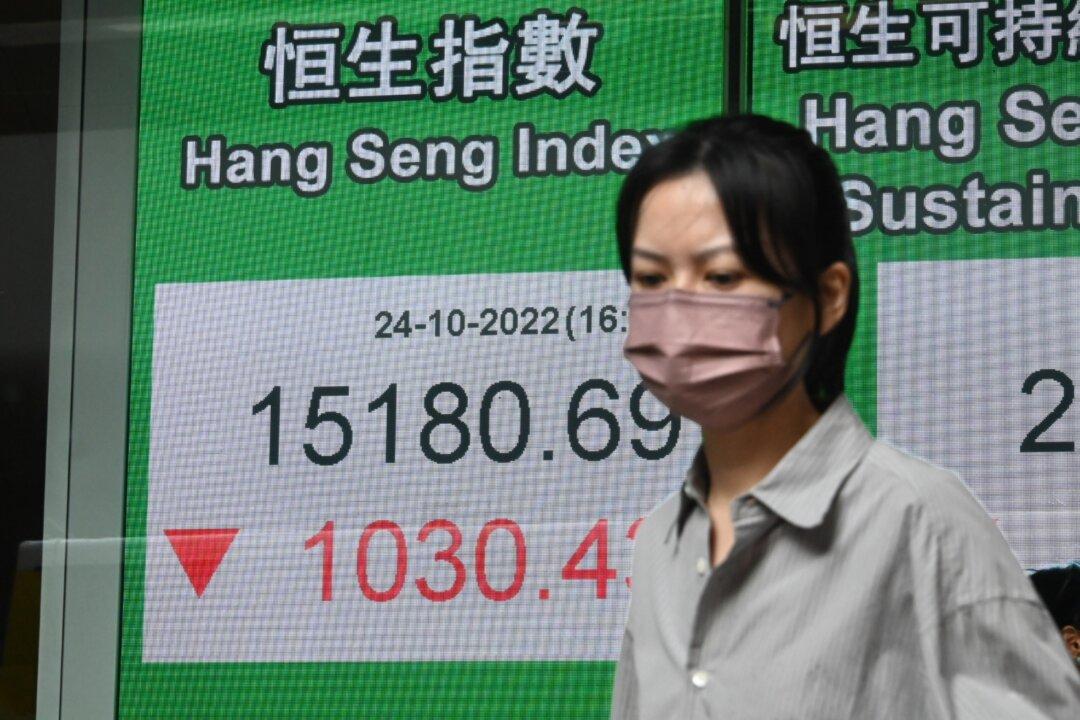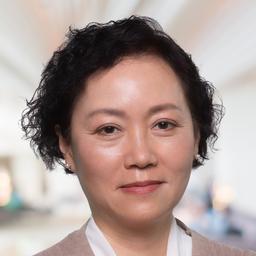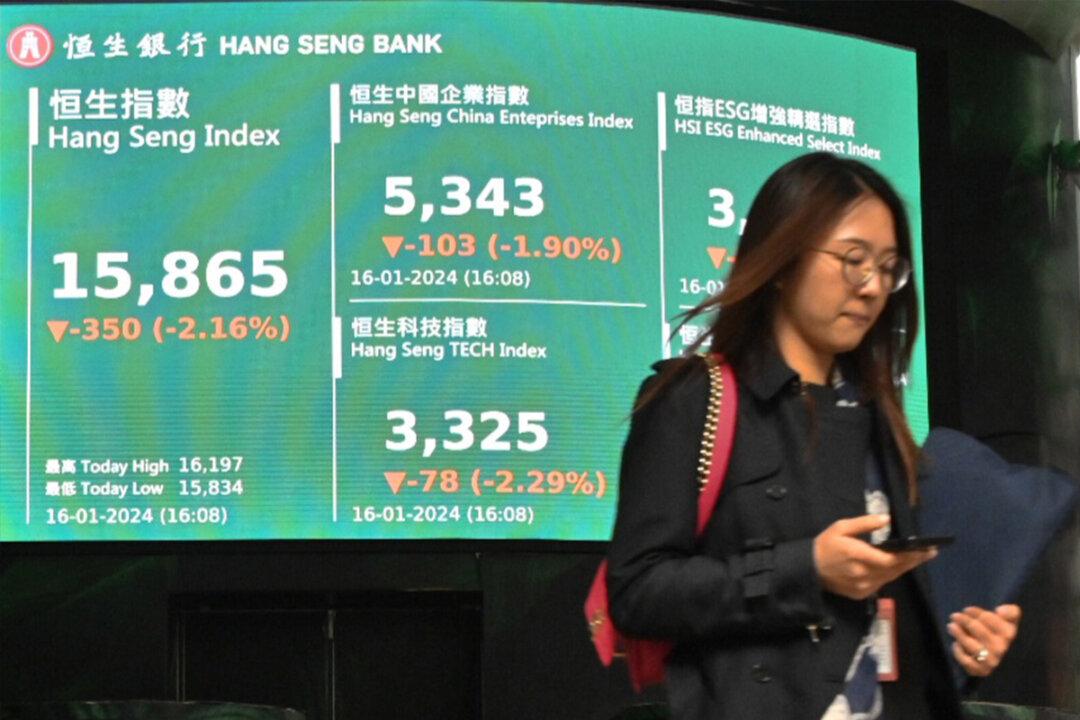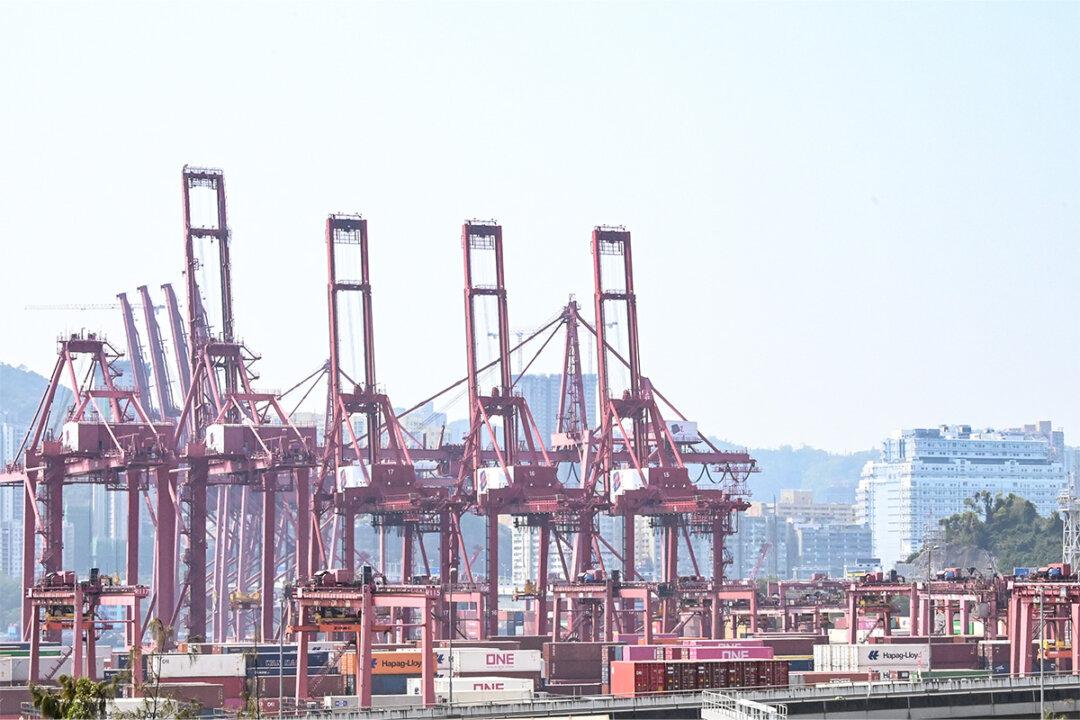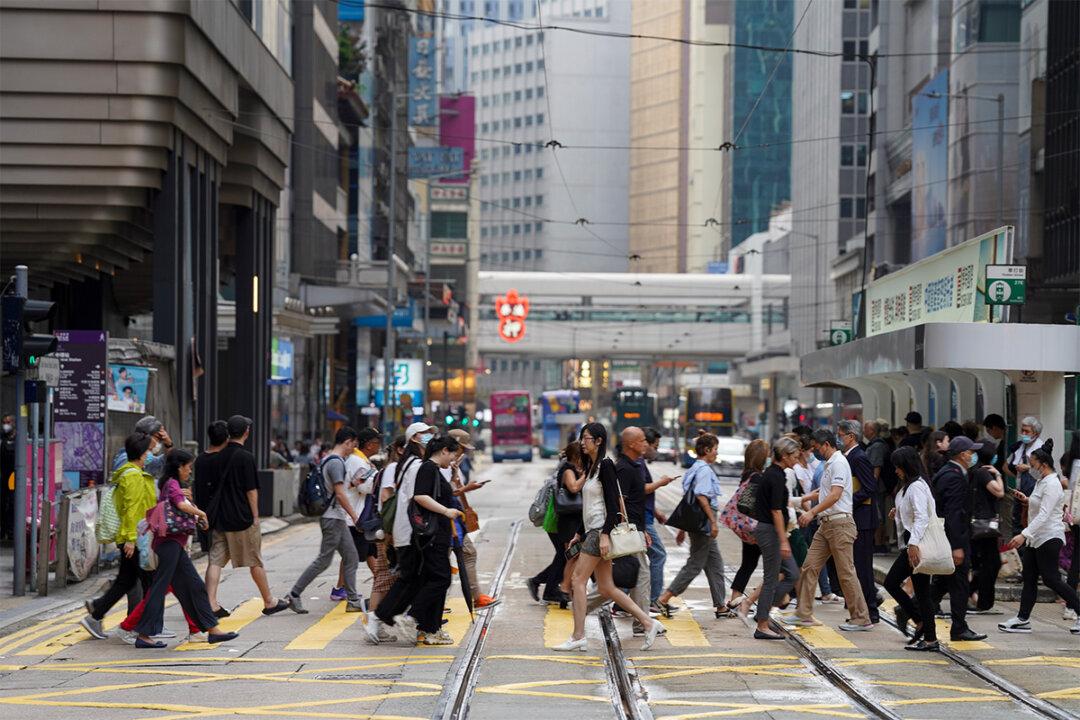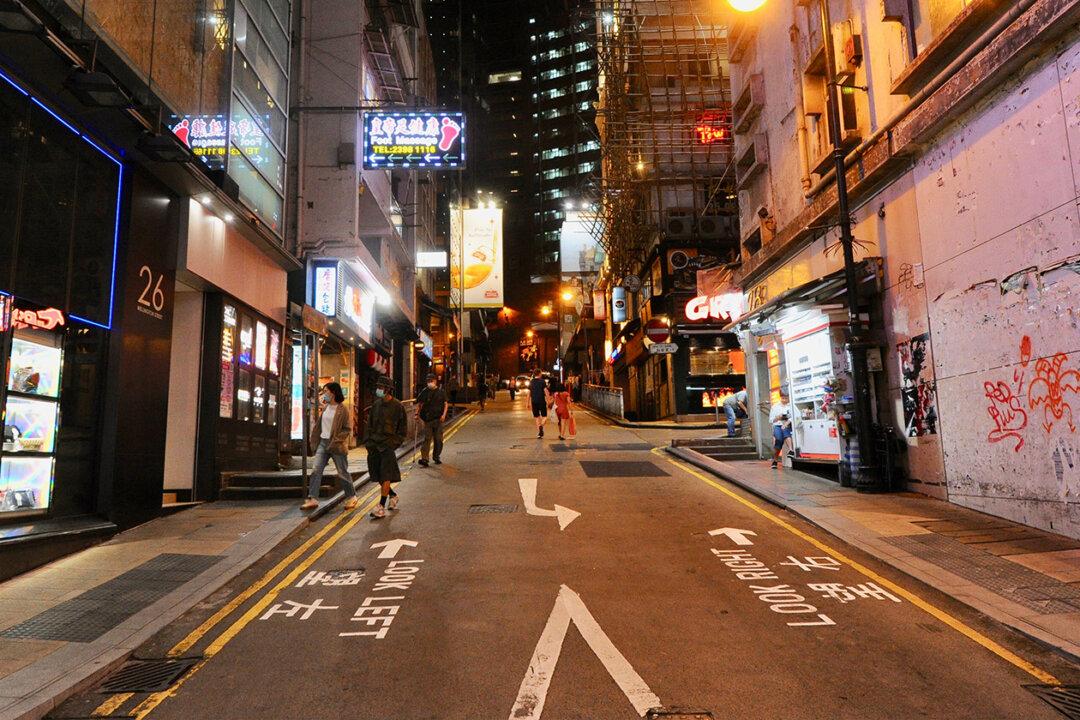On Monday, Oct. 24, Hong Kong and China stocks dropped, reversing the upward trend of U.S. stocks on Friday, Oct 21 and Asia Pacific stocks on Oct 24, in strong contrast to the performance of the global market. The Hang Seng Index plunged by more than 1,000 points, and the Shenzhen Composite Index and Shanghai Composite Index fell by more than two percent. While Australian and South Korean stocks closed higher by more than one percent, Taiwan stocks’ increase narrowed to 0.3 percent, as the market is worried that the tension between Taiwan and China will be further heightened after the CCP’s 20th Congress. India also traded up by almost one percent.
The Hang Seng Index (HSI) opened 316 points lower today, rallied about 100 points, and then started to fall sharply and kept on falling, hitting a new 13.5-year low. The Offshore Chinese Yuan/CNH also fell below 7.3, a record low. The HSI closed at 15,180 points, down 1,030 points or 6.4 percent, the worst single-day performance since the financial crisis in 2008, with turnover surging to 161.8 billion. In addition, the China Enterprises Index plunged 7.3 percent, and the Tech Index fell 9.7 percent.
